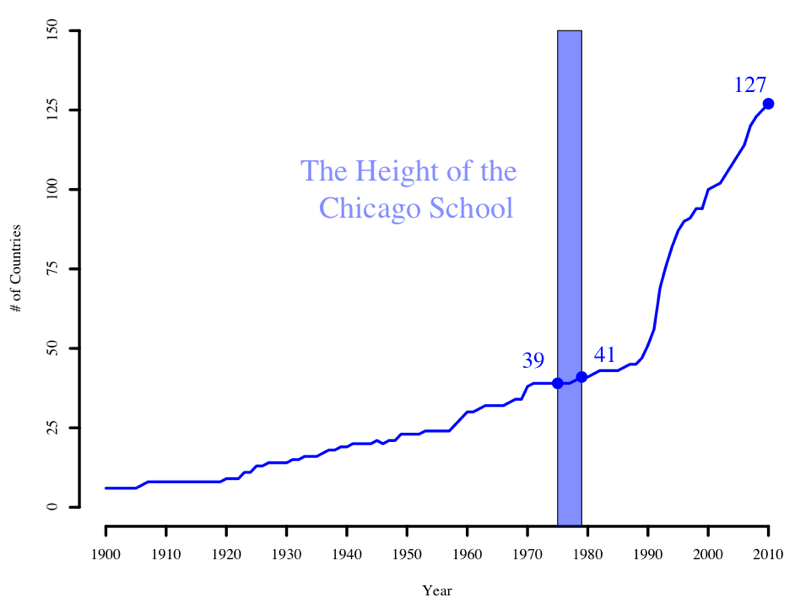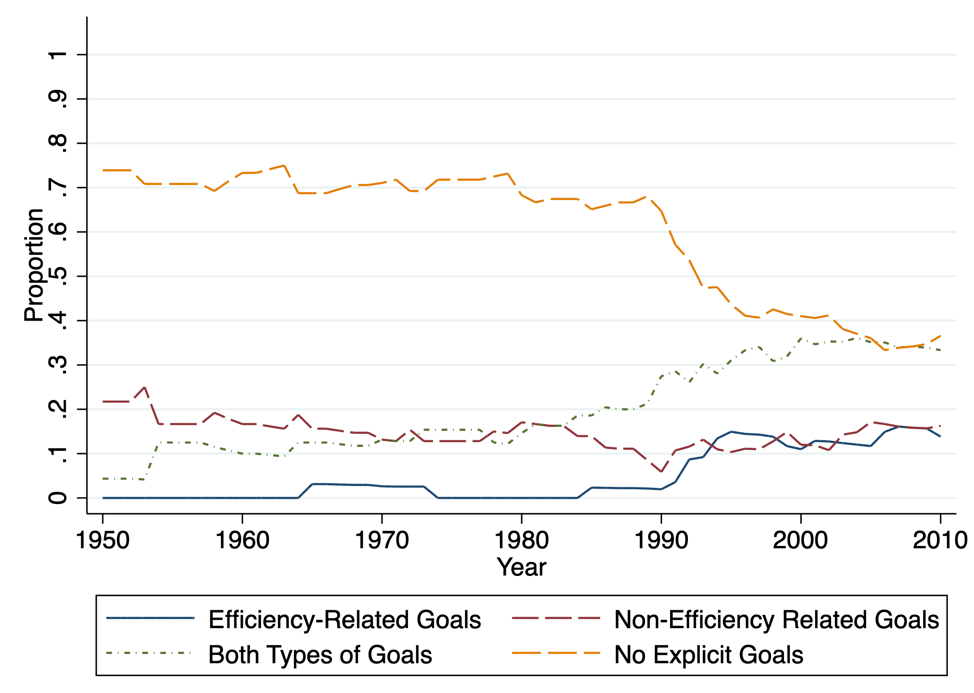A group of scholars primarily associated with the University of Chicago began to challenge many of the fundamental tenets of US antitrust law in the 1950s. This movement—which became known as the Chicago School of Antitrust Analysis—profoundly altered the course of American antitrust scholarship, regulation, and enforcement. Antitrust law became increasingly informed by economic theories with formalistic per se rules giving way to a case-by-case assessment of the economic effects of firm conduct. Many previously established antitrust doctrines—from the challenging of vertical mergers to the per se treatment of several forms of unilateral conduct by monopolies—were gradually reversed as a result. Although antitrust scholars may disagree on the appropriateness of the Chicago School ideas, few would question the profound influence those ideas have had on US antitrust policy.
What is not known, however, is the degree to which Chicago School ideas influenced the antitrust regimes of other countries. Anecdotal examples indicate a complex picture. For instance, several countries recognize an efficiency defense—ie efficiency-driven justifications used to approve an otherwise anti-competitive merger—in assessing the competitive effects of mergers. This practice is very much in line with the Chicago School ideas. But at the same time, enforcement against unilateral conduct of dominant firms remains vigorous in many jurisdictions, including the EU. This practice is in tension with the Chicago School view that unilateral conduct rarely calls for an antitrust intervention. Moreover, Chicago Scholars also strongly condemned the use of antitrust laws for redistributive ends or the promotion of industrial policy. For them, it would be disconcerting to learn that several countries list the promotion of employment or of national industries as a goal of antitrust laws or evaluate mergers based on whether they advance ‘public interest’.
In a forthcoming paper in The University of Chicago Law Review, we seek to go beyond these anecdotes and empirically explore whether ideas embraced by the Chicago School diffused internationally. To do so, we leverage two novel datasets on antitrust regimes around the world. The first—the Comparative Competition Law Dataset—provides detailed coding on the provisions of the antitrust statutes of 131 jurisdictions from their first adoption through 2010. The second—the Comparative Competition Enforcement Dataset—provides data on the enforcement resources and activities of 112 antitrust agencies between 1990 and 2010. Together, these datasets (which we have recently made publicly available) provide a detailed picture of the world’s antitrust regimes across countries and over time.
As these data illustrate, since the Chicago School antitrust revolution, the number of countries with antitrust regimes has soared. Figure 1 shows that in 1979, at the end of period where the Chicago School’s most prominent intellectual contributions were made, just 41 countries had an antitrust regime in place. But by 2010, 127 countries had adopted an antitrust regime. Our data thus allow us to examine whether these 86 antitrust regimes that were adopted after the Chicago School’s prominence in the US incorporate the insights of the movement, and also whether the countries that already had an antitrust regime amended their laws to reflect Chicago School’s theories.

Figure 1: Countries with Antitrust Statutes, 1900 to 2010
Our findings provide suggestive evidence that the influence of the antitrust revolution launched by the Chicago School has been limited outside of the United States. We specifically examine the influence of the Chicago School in three areas: policy goals, unilateral conduct, and merger control. And as this analysis shows, many ideas explicitly rejected by the Chicago School are common features of antitrust regimes in other countries.
First, we examine the goals and exemptions that countries have codified in their antitrust statutes. This analysis reveals that many countries have explicitly endorsed ideas in their antitrust laws that are antithetical to Chicago School theories. For instance, as Figure 2 shows, by 2010, 50 percent of countries with antitrust regimes had explicitly codified goals in their antitrust laws unrelated to efficiency—including the protection of small companies, promotion of exports, or advancing economic development.

Figure 2: Prevalence of Efficiency Related Goals in Antitrust Statutes
Second, we examine the provisions of countries’ antitrust regimes that regulate unilateral conduct by dominant companies. These data reveal that a majority of countries with antitrust regimes prohibited several kinds of conduct that Chicago School scholars had argued were unlikely to reduce efficiency. For instance, in 2010, 63 percent of those countries prohibited unfair pricing by dominant companies. Moreover, in 2010, there were more investigations opened around the world into abuses of dominance than in cartels—contrary to what the Chicago School would teach about their relative harmfulness.
Third, we examine merger review policies around the world. Again, this analysis illustrates that many countries have laws that incorporate ideas antithetical to the Chicago School. For example, by 2010, 42 percent of countries with antitrust regimes had merger defenses unrelated to efficiency—including the promotion of general ‘public interest’. Overall, these results combined suggest that the antitrust revolution launched by the Chicago School was always largely a US phenomenon, with limited influence on antitrust regimes around the world.
In addition to advancing debates about international antitrust, our paper offers new perspectives on the evolving policy debates in the US. Public attention in the US has recently begun to focus on increased market concentration, lessening of competition, and rise in economic inequality. The US Congress and enforcement agencies are facing mounting calls to strengthen the antitrust laws and their enforcement. Many influential scholars are arguing that the US needs to rethink its approach to antitrust policy; and some specifically blame the Chicago School for providing the intellectual foundation for the lax antitrust policy that has characterized US antitrust enforcement over the recent decades. While our research does not directly address whether the Chicago School was too lenient on large corporations—or whether and how US antitrust policy should be reformed—our data provides a more nuanced view of the Chicago School’s global reach. It also suggests that, if the US wants to re-evaluate many of the core Chicago School teachings and re-invigorate its antitrust enforcement, it has many examples around the world to turn to.
Anu Bradford is Henry L. Moses Professor of Law and International Organization at Columbia Law School.
Adam S. Chilton is Professor of Law, Walter Mander Research Scholar at the University of Chicago Law School.
Filippo Maria Lancieri is JSD Candidate at the University of Chicago Law School.
OBLB categories:
OBLB types:
Share:
